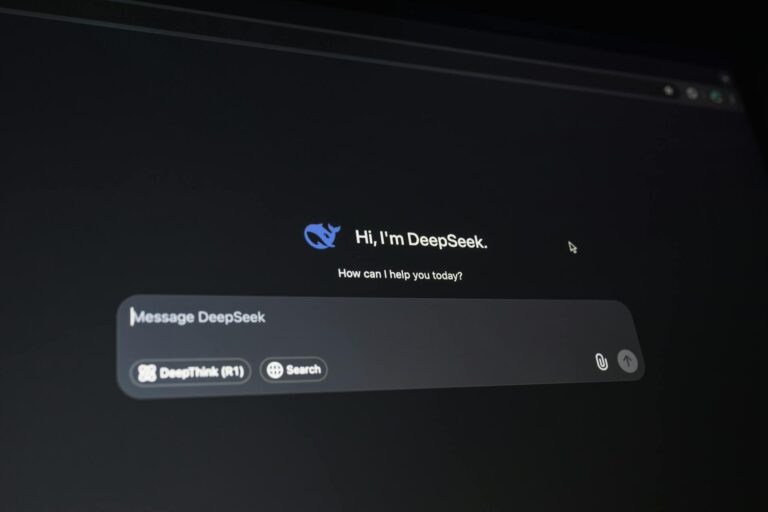
National Coding Week serves as a reminder of the importance of the digital skills that people need to thrive in today’s workplace. It’s also a good time to acknowledge the transformative changes occurring in the tech industry at the moment, and how this will significantly amplify the demand for digital skills, as emerging technologies like artificial intelligence reshape the way we work.
With AI now ranking as the number one priority in large company training strategies over the next four years, and expected to be adopted by nearly 75% of companies, it is imperative that workers do not get left behind. Yet although the skills in demand are shifting, it’s clear that coding will still remain essential.
Coding will not disappear in the AI revolution
At present, AI can sometimes generate working code. However, as Ryan Sheldrake, Field CTO EMEA at Lacework notes, this is an enhancer, rather than a replacement for human coders: “Artificial Intelligence presents both incredible opportunities and significant challenges. On the one hand, it is quickly becoming a non-negotiable tool in empowering developers to produce work at speed and scale. And on the other, it presents notable security risks.”
This is echoed by John Walsh, Senior Product Marketing Manager of Developer Security at CyberArk, who also emphasises “The problem is that AI tools can and will recommend code snippets that contain security vulnerabilities. This is why human developers must still review and be accountable for any code that AI produces.” Even so, Walsh thinks that “with careful evaluation and adherence to cybersecurity practices, ChatGPT and similar AI-powered tools can elevate software development to new heights.”
Furthermore, it could even lead to technology professionals losing skills, as Robert Petrocelli, CTO of Pluralsight explains: “An overreliance on AI tools can actually hamper developers learning new skills themselves, which is counterproductive. Being able to generate working code with AI isn’t the same as understanding working code, so it’s vital that businesses continue to support developers to build the coding skills and expertise required to make the most of AI and increase both productivity and fluency.”
Yet if the coding outputs of artificial intelligence aren’t good enough to replace the efforts of human coders, and relying on it could lead to negative consequences in code output or worse, this begs the question of how developer and software engineering roles will be transformed by the technology. John Smith, EMEA CTO at Veracode sees the technology as a productivity booster, noting that “the likes of ChatGPT and other generative AI tools are unlikely to draft perfect lines of code each time, especially as the code gets larger and more complex, though it can certainly help speed up the code writing process.” Smith continues: “In fact, generative AI can be used as a partner by human coders for a process called ‘Pair Programming,’ where one writes the code and the other offers guidance and spots mistakes.”
Technology skills could be even more sought after
The demand for AI and the automation opportunities it brings will increase the need for people with digital skills across a variety of industries. As Mark Gray, UK&I Manager at Universal Robots states, “Coding is critical to any career in AI or automation. The International Federation of Robotics estimates that robots will be used by more than 50% of production operators in a decade”.
However, as Paul Anderson, VP UK&I at Fortinet points out: “Many organisations struggle to recruit new talent. In fact, according to the 2023 Fortinet Global Research Report on Cybersecurity Skills Gap, 83% of boards are advocating for hiring more IT security staff, emphasising the demand for talented technology professionals.”
The solution? Anderson thinks that people’s interest in tech must be “nurtured by education institutions, while business must create or support initiatives where possible.” Gray agrees, stating “we must bring coding skills to the fore”
And everyone is welcome, as Claire Montgomery, Senior Director of Software Engineering at G-P reminds us: “It’s important to highlight the importance of building a diverse team of engineers to tap into the full potential that’s available. True diversity in coding is not about hitting an arbitrary number; it’s about embracing a wide spectrum of perspectives and backgrounds. It’s only through this diversity that at G-P, we can think more like our customers and effectively problem-solve. Ultimately, we’re able to have much more of a business impact when our team comprises individuals from various backgrounds.”
This extends to all sectors, including defence, as Sue-Ellen Wright, Managing Director of Aerospace, Defence and Security at Sopra Steria states: “Precisely because failure could be a life-or-death issue in our sector, we must also ensure that the brilliant people developing AI represent our whole society. Better diversity in our coding community will be integral to our success in designing and deploying AI tools for the best outcomes.”
Technology skills could be even more sought after
Although coding and other traditional digital skills will remain important, the coming AI revolution will bring new skills into focus, and even make coding easier to learn. As John Kelleher, AVP UK&I at UiPath states, “With AI now pervading so many aspects of our working lives and a shortage of developers, self-teaching digital skills by becoming citizen developers can provide employees with the opportunity to get involved in technology projects.”
Emphasising the need to continually build on skills people already have, Kelleher adds “thinking of the new professions AI will lead to, being equipped with the skills to not just work but thrive alongside AI is essential. With so many new technologies now a consistent part of working life, continuous engagement with technology should be highly encouraged and supported by businesses.”
The unwavering significance of digital skills and lifelong learning
In the midst of AI appearing everywhere, the enduring relevance of digital skills remains a linchpin of successful careers. While AI showcases remarkable capabilities, its limitations in crafting secure and effective code underscore the indispensable role of human coders. Simultaneously, it will also birth new industries and job roles demanding new skills, elevating the need to commit to lifelong learning.


